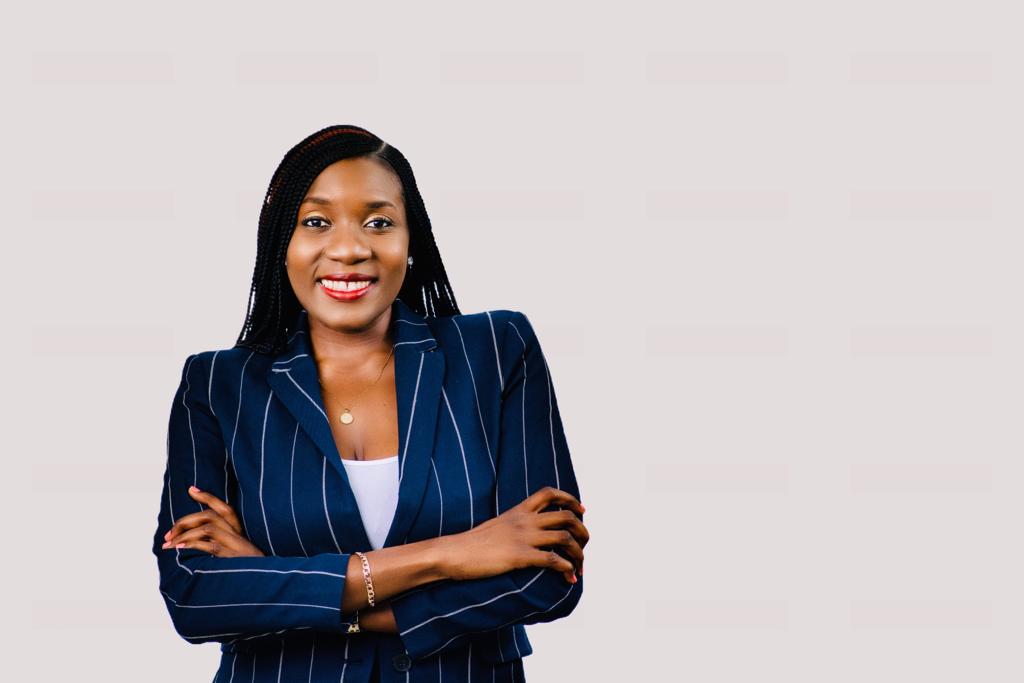Health
What every drug user should know – Dr Dumebi Mordi
Published
5 years agoon
By
Editor 1
Dr Dumebi Mordi is a public health consultant and clinical pharmacist with over 15 years experience in pharmaceutical management.
She got her Doctorate in Pharmacy from Texas Southern University in Houston, Texas. She later went on to get two masters degrees (an MPH (Masters in Public Health) and an MBA) from Johns Hopkins University in Baltimore, MD.
She has worked in a myriad of settings including:
-as a clinical pharmacist at The Johns Hopkins Hospital in Baltimore, MD for over 9 years
-as a retail Pharmacist at Walgreens and CVS pharmacies in the US
-a procurement manager for a retail pharmacy chain in Nigeria
-A public health consultant working with NGOs and governmental bodies to improve health systems in developing countries all over Africa and Central Asia.
Her most recent role is principal consultant and owner of Rx3.0 Pharmacy, a next level pharmacy where she engages in extensive patient counselling and teaching on how to use medicines as well as disease prevention methods. Additionally, she has served as a consultant and advisor for organizations such as Management Sciences for Health (Arlington, Virginia), Pharmacists Council of Nigeria (Abuja, Nigeria) & Elite Pharmacy Education Services (Florida) amongst others.
She prides herself on being an honest, trustworthy pharmacist who is highly competent and is working to improve healthcare in Nigeria. She speaks with Ediale Kingsley on the health situation of the nation.
Why did you decide to have a career in the health sector?
I decided on a career in the health sector because I am passionate about people and want to help improve their healthcare. I know that some people die from unnecessary health-related causes and easily curable diseases and I want to help change that narrative in Nigeria. I value human life and it is my life’s work to help preserve it.
How do you rate the health sector in Nigeria today?
We have a lot of work to do. The World Health Organization (WHO) has ranked Nigeria as number 187 out of 190 countries when it comes to healthcare and we are facing serious shortages in healthcare manpower. Healthcare professionals in Nigeria don’t have the necessary equipment, training and medicines to do their jobs. We sometimes have to work in the face of great challenges such as inconsistent electricity, inadequate diagnostic machines and scarcity of medicines.
Yet the demand for healthcare is increasing as our population keeps growing. This leads to undesirable consequences including medical tourism, improper healthcare, and poor outcomes.
What practices do you think have become obsolete?
Obsolete practices are obsolete because we have found better ways to do things especially when it comes to providing healthcare to people. Therefore, I think we should focus more on updated and modern practices that are in line with international standards. Nigeria has all the potential to become a hub for medical practice in Africa and the world as a whole. However, our challenges lie in inadequate funding provided to the health sector and inefficient use of the scarce resources which already exist.
Health is wealth they say. As a nation, we give out this wealth in what is known as Medical Tourism. How do we correct this?
I actually believe that Nigeria’s wealth is her people. Our greatest strength is our large, growing population, most of which is under-utilized and not adequately challenged. These same people are the ones who facilitate innovation, drive our economy and are the largest untapped resource that we have. Additionally, we are spending billions of dollars in medical tourism annually which is generated by people who live and work in Nigeria.
If you meet their healthcare needs, you redirect the flow of their money and keep more in the Nigerian economy.
So how do we correct medical tourism? It is simple: invest more in the health sector and provide more support to healthcare professionals. The truth is that people travel out of Nigeria to get healthcare because they don’t trust the current system, which is broken.
Furthermore, there is a need to improve financial compensation for healthcare professionals and make it more feasible to practice in Nigeria and live well. It is discouraging to spend time and money on acquiring the necessary medical training only to be devalued and still struggle financially. The irony is that the same calibre of professionals that people travel to see also exist in Nigeria. Modern-day Nigerian healthcare professionals are a diverse group with different training from countries all over the world such as India, US, England, Ghana etc. and some are from the same institutions that people travel to seek healthcare from. For example, I worked in one of the top hospitals in the US (The Johns Hopkins) but I live and practice here in Nigeria.
The key is to not frustrate the existing healthcare professionals and make it more desirable to stay in Nigeria.
The after-effect of this will be a decreased desire to relocate abroad and a conducive environment for more Nigerian medical professionals in the diaspora to return to Nigeria and practice here. In essence, a reverse brain drains.
How have we progressed in the matter of medical drugs safety and quality check? One time a woman fought for this with her life (late Dora Akunyili).
Shouldn’t we remember the likes of her and other good persons who have helped to push our health sector?
Absolutely, Dr Dora Akunyili was an icon and inspiration to us all.
What do you enjoy most about your job?
The most enjoyable part of my job is the interaction with patients. People come to Rx3.0 Pharmacy because they know that they know our pharmacists are very intelligent and will give them honest, accurate answers about their medicines. Rx3.0 pharmacists are more focused on providing pharmaceutical care to patients than anything else. It is very rewarding when you work with a patient with a challenging health issue, you find a solution and their quality of life is improved. What ends up happening is that the patient forms a trusting relationship with you that money cannot buy and in most cases, you become their pharmacist and trusted confidante.
What is challenging about your job?
Pharmacists don’t always get the respect and appreciation we deserve. In many cases, we work closely with patients for hours and the patient goes across town with the hard-earned knowledge of the pharmacist to buy the cheapest drug possible. Even more so, people compare pharmacists to non-pharmacists who sell drugs without the requisite knowledge. It undermines our effort and knowledge as professionals because the value is now placed on the drug as opposed the person who told you how to use the drug in order to get well and not harm yourself in the process.
What are the current issues/trends in the field of pharmacy?
We have a myriad of issues including the fact many non-pharmacists want to practice pharmacy illegally in order to make a profit. Pharmacy is a science and it takes years of dedicated training during and after school. It is not something you can learn by watching pharmacists or by “osmosis”. The challenge we have is that a lot of people see community pharmacy as a profitable venture and are willing to go to great and sometimes illegal lengths to establish pharmacies. This is dangerous as the unsuspecting public is exposed to people who do not know what they are doing and sometimes this increases the risk of buying fake drugs or toxic medicines.
Drugs are not regular commodities like biscuits and chewing gum. Anybody can sell snacks because the potential for harm is very low but not just any person can sell drugs. I always ask people who insist on buying drugs from non-pharmacists because of cost, “if something negative were to happen when you take this drug without the proper advice, who would you hold responsible?”
The person who is selling drugs without adequate knowledge is not liable and can easily disappear. But a licenced pharmacist faces severe repercussions from regulatory bodies if they were to mislead you. “Who would you rather trust? Someone who is a trained pharmacist with a licence to protect or someone who cannot even pronounce the name of the drug they are selling to you?
What advice would you give someone looking to get into the field of pharmacy?
I would say go ahead for many reasons. Nigeria has a shortage of qualified pharmacists so the job market will favour you and if you wish to be an entrepreneur, you can open up your own community pharmacy in an underserved area. There are many places in Nigeria where there is a need for a proper pharmacy.
It is a field with many opportunities for growth and expansion. You can choose to work in the community (retail) pharmacy setting like Rx3.0 Pharmacy, in the hospital, in the pharmaceutical industry, in government or you can even teach in the universities. There are many options depending on where your interests lie.
Pharmacy is a very rewarding profession and interesting to say the least. There are many steps to take and one must be resilient and focused in order to become and practice as a pharmacist. It is not easy to achieve but then again, nothing worth having in life comes easy.
Trending

 Football2 days ago
Football2 days agoGuardiola advised to take further action against De Bruyne and Haaland after both players ‘abandoned’ crucial game

 Business1 week ago
Business1 week agoDollar crashes further against Naira at parallel market

 Business1 week ago
Business1 week agoRecapitalisation: Zenith Bank to raise funds in international capital market

 Education1 week ago
Education1 week agoArmy reveals date for COAS 2024 first quarter conference

 Crime1 week ago
Crime1 week agoFleeing driver injures two on Lagos-Badagry expressway

 Covid-191 week ago
Covid-191 week agoBritish legislator demands Bill Gates, other ‘COVID Cabal’ faces death penalty

 Latest6 days ago
Latest6 days agoIsrael pounds Hezbollah with airstrikes after Iran attack

 Aviation4 days ago
Aviation4 days agoNCAA suspends three private jet operators for engaging in commercial flights

